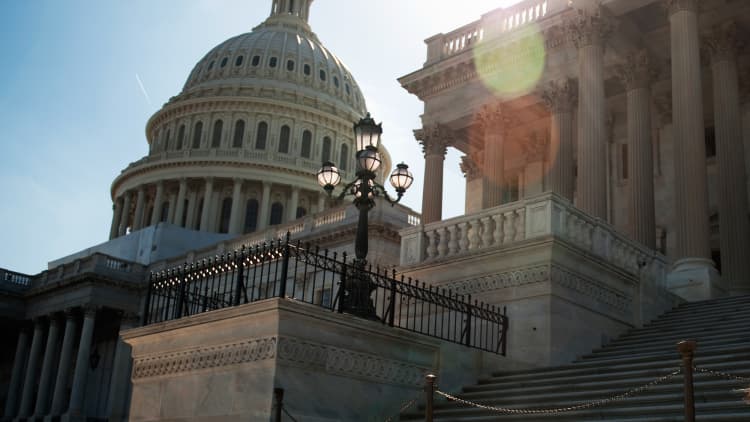Facebook co-founder-turned-critic Chris Hughes is continuing his fight against what he sees as the company's monopoly power, announcing a new $10 million Anti-Monopoly Fund on Thursday.
The fund, an initiative of Hughes' Economic Security Project, will back existing and new academic research, policy and organizing work concerning market power. The project will extend its focus beyond Facebook and Big Tech to combat market dominance across industries with investments until March 2021. Partners for the initiative include the Ford Foundation, Knight Foundation and George Soros-backed Open Society Foundations, among others, according to a press release.
"We are at a pivotal moment where cultural and political momentum are aligned to rein in the unchecked behavior of Big Tech," Hughes said in a statement alongside the fund's announcement. "In addition to the necessary scrutiny of the tech industry, there is also a need and opportunity to take meaningful action on monopoly power across industries that's led to corporate interests in the driver's seat of our political and economic system for far too long."
Hughes publicly called to break up Facebook in a May New York Times op-ed, saying, "The most problematic aspect of Facebook's power is [CEO] Mark [Zuckerberg]'s unilateral control over speech." Hughes left the company to work for Barack Obama's 2008 presidential campaign and said in the Times piece that he liquidated his Facebook shares in 2012 and no longer owns shares of any social media company.
The launch comes as Facebook fields antitrust inquiries from the Federal Trade Commission, the House Judiciary Committee, several state attorneys general and potentially the Department of Justice, which has pledged to conduct a broad review of market power in the tech industry. Google also faces its own slew of probes, and Amazon and Apple have both also received questions from the House Judiciary Committee into their practices.
As the investigations get started, Facebook has continued to stir up D.C. officials with plans to implement end-to-end encryption across its messaging services and to launch a new cryptocurrency called libra. Zuckerberg will face lawmakers next week to discuss the company's cryptocurrency plans and will undoubtedly be asked about how the currency could add to Facebook's power.
Facebook declined to comment on the fund.
Concerns about Big Tech's power have spilled over into the presidential race. At Tuesday night's Democratic debate, the nine candidates who responded to a question about antitrust action against the industry differed on their approaches, but shared fears of tech firms' unregulated power.
WATCH: How US antitrust law works, and what it means for Big Tech



